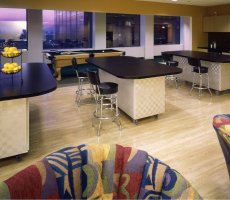May 18, 2015
European workers optimistic about the impact of workplace technology
 The European workforce is optimistic about the impact of new and emerging workplace technology although many employers face challenges in pursuing digital business models, according to new research by Accenture. The report claims that more than four times as many workers think technology will improve their working lives than those who think it will have a negative impact. The study of over 2500 workers and 500 business leaders in the EU found that 57 percent of workers think technologies such as robots, apps, data analytics and artificial intelligence will improve their working experience versus eight percent who think it will worsen it. Fifty percent of EU workers believe that digital technology will improve their job prospects compared to 12 percent who think it will limit them.
The European workforce is optimistic about the impact of new and emerging workplace technology although many employers face challenges in pursuing digital business models, according to new research by Accenture. The report claims that more than four times as many workers think technology will improve their working lives than those who think it will have a negative impact. The study of over 2500 workers and 500 business leaders in the EU found that 57 percent of workers think technologies such as robots, apps, data analytics and artificial intelligence will improve their working experience versus eight percent who think it will worsen it. Fifty percent of EU workers believe that digital technology will improve their job prospects compared to 12 percent who think it will limit them.




























April 30, 2015
Three workplace issues that could help to shape the general election 0
by Mark Eltringham • Comment, Flexible working, Legal news, Technology
(more…)